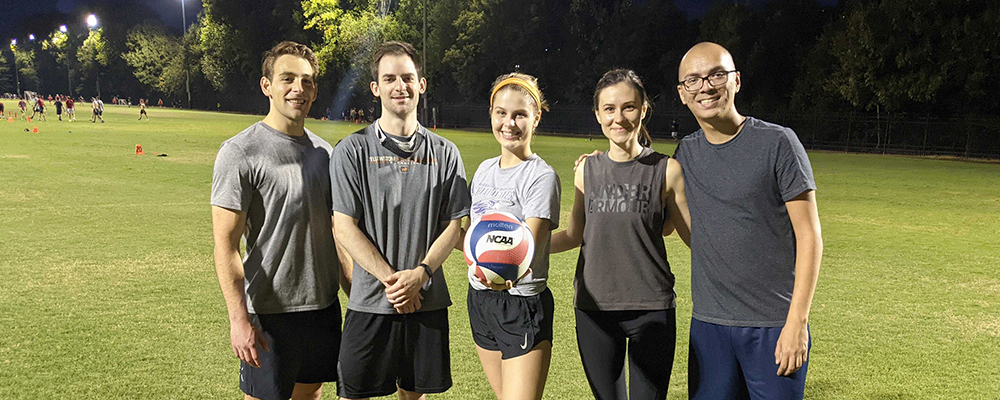Resources abound at the Institute for Advanced Analytics–from committed faculty and staff to seemingly unlimited opportunities to apply and grow skill sets. For me, tools for effective communication have been like a gold mine, rich in opportunities for self-reflection and improvement.
I had always been a confident presenter and performer, looking forward to speaking to and entertaining large groups of people. After nearly three years of remote work because of the coronavirus pandemic, I was largely out of practice when I enrolled at the Institute.
For our first major presentation, the Summer Practicum project. I came in with a prepared speech, well-practiced (but a bit nervous). As I looked out into the sea of new Institute classmates and faculty, whom I so badly wanted to impress, my words left me, my legs shook, and my confidence dwindled. I somehow pushed out my first few sentences, albeit shakily, until I was struck by the deafening moment of losing my words. I looked out at the silent crowd of eyes for the longest four seconds of my life, not thinking but frozen in between a fight or flight response.
I pushed forward, but in my mind, the damage had been done. I had thoroughly embarrassed myself before my new peers, or so I thought.
As I returned to my seat in the audience, my classmates lifted me up nearly instantly. “What an impressive recovery!” “I didn’t even notice anything happened!” When I felt like wallowing in self-pity, my peers quickly normalized my nervous slip-up. Through their encouragement, I noticed that most of us were nervous in our own ways, and what better audience to take risks and fail in front of?
Dr. Sarah Egan Warren doubled down on the theme of taking risks during the end-of-summer communication week. Communication week is where students deliver three different presentations and spend every day learning about techniques to improve almost every facet of our data communication skill set.
To me, taking risks looked like being honest about my presentation nerves with my peers and picking myself up when I stumbled to listen intently to feedback. Even when I felt like I had failed during communication week, I made sure to “fail forward” to maximize what I learned from each experience.
The idea of failing forward opened me up to many lessons. I learned and tried new rehearsal techniques, pre-presentation routines, and philosophies.
Communication week was a safe space to try these out, refine what I liked, and throw out what I didn’t.
I cut down my coffee intake to reduce jitters, flexed my muscles in the bathroom mirror right before a presentation, and even practiced my presentations to a YouTube video of business executives blankly staring back at me.
I trusted my classmates and the structure of communication week enough to take these risks, and I was learning a lot about myself as a presenter in the process.
Since my communication week journey, I’ve continued seeking out opportunities to practice public speaking, and one such experience has been weekly improv classes. Led by Institute alum Sufyan Shahin (class of 2020) on Mondays at 8am, our group practices a new and sometimes scary way to communicate.

So far, we’ve learned to
- push through moments of getting “stuck” in a skit to minimize awkwardness or even maximize the awkwardness for comedic effect.
- take what is given to us, say “yes, and…”, and build on top of that.
I feel improv is helping me become a more dynamic speaker–one who can keep composure when the factors around me change or if I lose my words. Gaining experience in these scenarios only grows my confidence as a presenter.
As our time at the Institute comes to an end, we’re surrounded by supportive faculty, staff, alumni, and classmates who have created a safe space for trying new things, messing up, and trying again. Whether presenting a complex data visualization or trying to implement a new machine learning technique, I feel confident that I have the resources at the Institute to unlock the best version of myself as a data professional and beyond.
Columnist: John Roach
